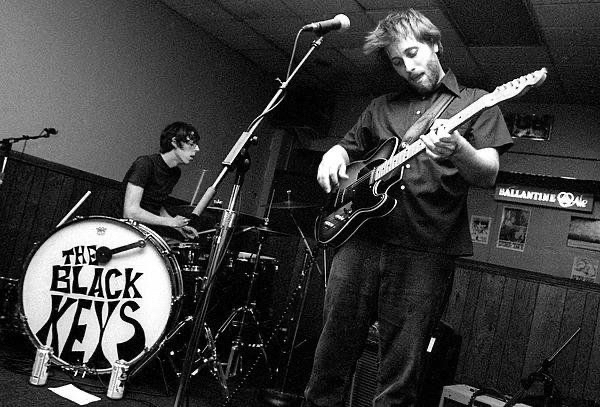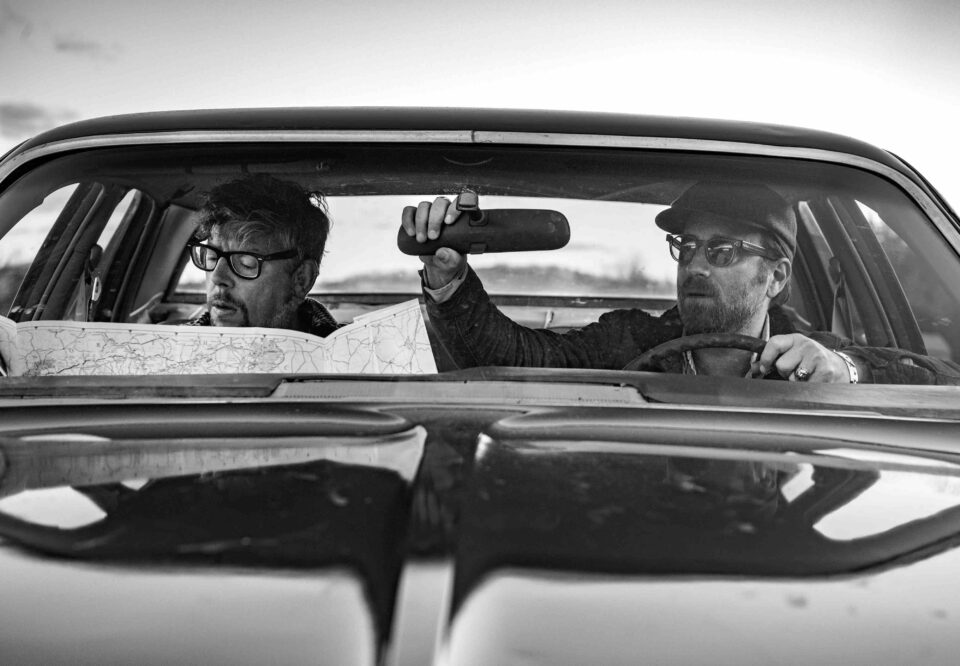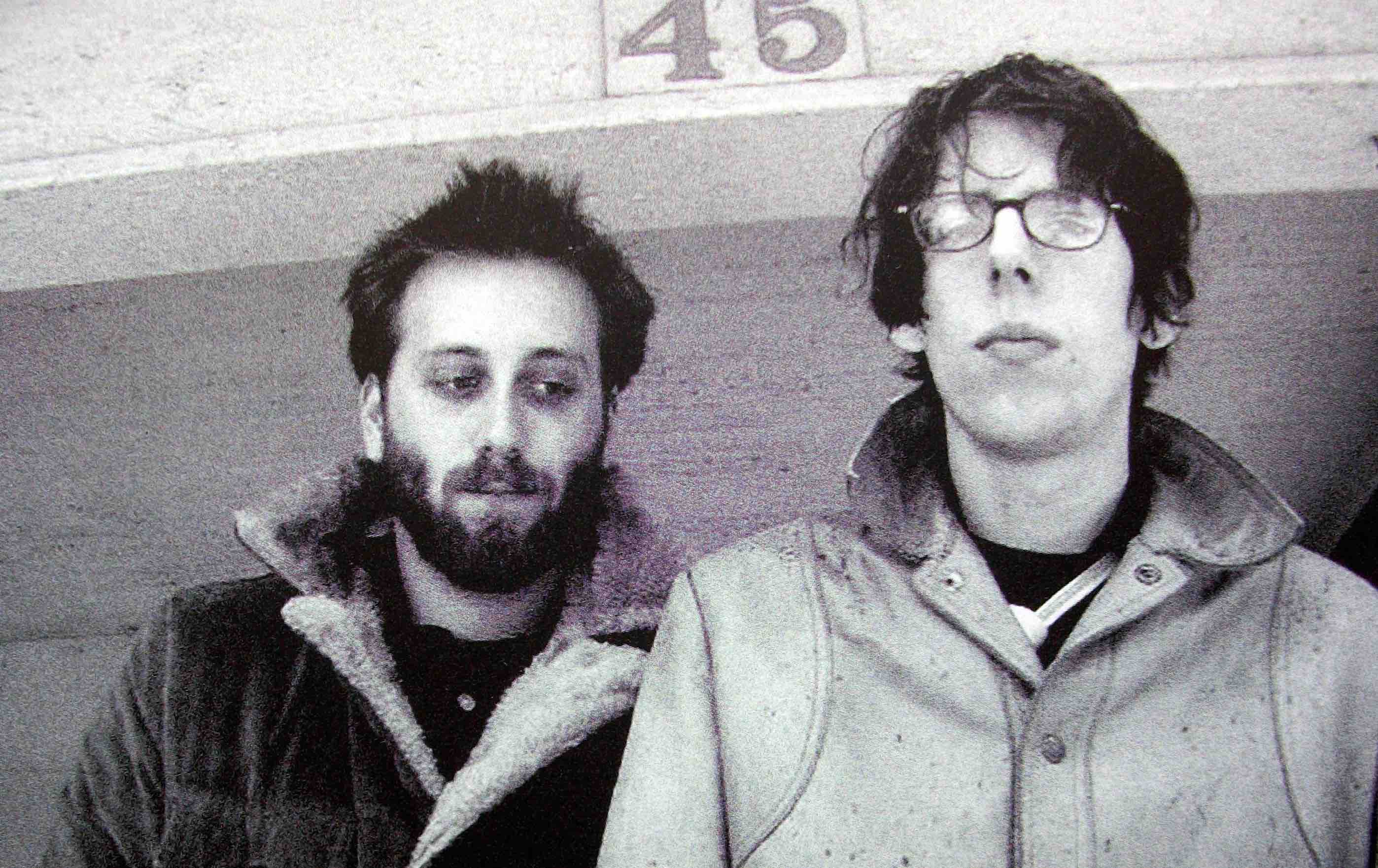There’s a cursed mythology that comes with growing up in a town with less than 3,000 people living in it. Until I went to college, I thought sidewalks were some utopian commodity, that driving 20 minutes to get fast food was normal. My interpretation of Southington, Ohio, was that, until Mike Tyson built a mansion there in the 1980s, it was an unknown, five-square-mile hub occupied by blue collar families whose patriarchs worked nearby at the Packard and General Motors plants. You moved to Southington to build generational roots, to send your kids to a school with enrollment numbers that had been dropping steadily since 1981. Anything above the poverty line was considered wealthy, and the families with bonafide wealth were like Rockefellers.
I’ve spent a lot of the pandemic considering how someone might leave a birthplace in order to grow. Most of the people I once loved in this town are still here, working good jobs or starting their own businesses or becoming parents. At the height of COVID, I moved out of Southington, venturing west to Columbus where I realized that my middle-class upbringing in smalltown America teeters on the poverty line anyplace bigger. But to describe Northeast Ohio to a non-Ohioan, a person must undergo the labor of articulating what a place not yet vanished but far from alive might look like. To make rock music, a person must undergo a similar task—in this case always performing some kind of resurrection, whether of sound or of success or of both.
In late 2001, two dudes from Akron, Ohio, Dan Auerbach and Patrick Carney, formed a band called The Black Keys, conjuring dollar-bin blues rock in the latter’s basement—even though they hadn’t seen each other in over a year when they formed. “Dan and I grew up together, but we weren’t tight friends, just neighborhood acquaintances.” Carney says. “When I was 17, I was into music, always just a stoner jock, or something. [Dan] was always quiet and cool, funny. He didn’t strike me as a music guy [until I realized] we were into the same kind of shit, and then we would jam here and there.” Carney told Auerbach about the Korg D12 he’d just purchased and offered to record Auerbach’s bar band. “We were all poor kids, middle class kids, but at this point we were all broke because we were working shitty jobs, so it was kind of a big deal that I got this thing, because none of our other friends had anything like it,” Carney adds.
They set aside a day to record, but the rest of Auerbach’s group never showed up. While the two guys were droning downstairs, they stumbled into a small conversation that would end up changing the course of rock and roll.
Auerbach: You should go play drums and we can play these songs.
Carney: I don’t know any of these songs.
Auerbach: It doesn’t matter.
Carney was still in college when he and Auerbach linked up for good. 9/11 had just happened and classes were canceled across the country, giving him some time to engineer the recordings. “I wasn’t even a drummer, man,” Carney says. “I didn’t even know how to do it that well. My girlfriend went to Oberlin, so I took the 12-track up there and just hung out in her dorm for a few days and mixed this stuff on headphones. I made the demo and came back to Akron and gave it to Dan.”
Auerbach: This is really cool, dude. We should do something.
Carney: You mean start a band?
Auerbach: Yeah.
Carney: We gotta call the band The Black Keys.
Auerbach: No, that’s it.
The band’s name comes from local character named Alfred McMoore, a schizophrenic artist Auerbach and Carney’s dads would take care of from time to time. “[Alfred] lived in a halfway house, was completely dependent on other people, and our dads were just fascinated with him,” Carney says. “My dad would get him pipe tobacco and Diet Coke; Dan’s dad would take him big pieces of paper and he’d make art on these things to sell, and we’d give the money to him.” McMoore would call Carney’s and Auerbach’s houses and leave messages on their answering machines weekly, always giving a familiar spiel: “Jim Carney, this is Alfred McMoore. I need pipe tobacco. If you don’t bring me pipe tobacco, you’re a black key, you’re a D flat.”
“The Hives were getting played all over MTV, as were The White Stripes and The Strokes. There was a big resurgence happening and here we were, these dipshits living in Akron. I think we felt like we could easily get sucked up into that.”
The demo Auerbach and Carney made wasn’t yet the collage of fuzzed-out, sludgy, Yardbirds-esque sounds that would end up being The Big Come Up. But, after sending the tape out to over a dozen indie labels, Alive Records in Burbank had interest. “Patrick at Alive said, ‘We’ll put your record out if you send me 11 songs. I’ll send you 50 copies of vinyl and 100 CDs,’” Carney recalls, “so I had to upgrade my recorder. I got the 16-track digital thing and we [went] to start recording in January and didn’t even really know how to write songs. We didn’t really know what we were doing.”
Auerbach was playing live music in Kent, Ohio, for a living while Carney flipped burgers at a local spot called Gasoline Alley. After three or four weeks they had 13 songs recorded, and Alive told them to go play some shows. Their first gig was at Beachland Ballroom and Tavern, a city favorite in the Waterloo Arts District of Cleveland’s East Side, with three other bands. The Keys were first on the bill and played for under 20 people. “The owners, Mark [Leddy] and Cindy [Barber], immediately after our set, came over to us: ‘Yeah, that was amazing, will you guys come back and play in a couple of weeks?’ From there on out, we had a gig whenever we wanted it there.”

Despite no one showing up to their next Beachland show, Leddy and Barber helped the guys get a booking agent for their upcoming tour. “I found the original route sheet for the tour a couple days ago and it’s insane,” Carney adds. “The guaranteed money through the whole tour, for a few weeks, was $250. There was no guarantee that we would have any money. We had no credit card. We had both saved money mowing lawns to go sign up for a cell phone, which was $45 a month. It was so expensive, but we were so broke, man.” Despite being done in support of a no-budget, DIY blues record, the tour attracted high-profile attention. “It started playing out like a childhood dream after a few months,” Carney says. “We were talking to all of these big labels and shit. It was a magical time, because The Hives were getting played all over MTV, as were The White Stripes and The Strokes. There was a big resurgence happening and here we were, these dipshits living in Akron. I think we felt like we could easily get sucked up into that.”
“There’s a guilt that comes with winning, or maybe—as perpetual losers, as Cleveland sports fans—we know how fleeting winning actually is. Deep down, we’re all kind of losers, but it was really exciting when it was going on.”
Seymour Stein wanted to sign the band to Sire Records, giving regular assurances to Auerbach and Carney, despite not sending a recording contract in the mail like he’d promised. “He was giving me a hard time and we made this crazy decision,” Carney says. “I don’t know how many people would do it, but we were broke, and we called Seymour and told him we weren’t going to sign to Sire because he couldn’t issue a contract to us in six weeks. We knew we had to make more music, we knew we had to work quickly, so we basically told a major label that we weren’t gonna go there.” Afterwards, Carney called Fat Possum Records and said they’d sign on with them. When the label sent them a check for $12,000, they blew the money on rent for their new apartments, recorded most of the next album, 2003’s Thickfreakness, in one session, and went overseas on big support tours.
“I feel like the adventure really started there, because we got the experience of what it’s really like to be in a band,” Carney mentions. “There were moments in 2003 when we got tiny batches of press for the first time, and I was like, ‘Is this how it happens? Are we gonna be a big band? Is this gonna work out for us?’ We sizzled there for a while, until we got into [2006’s Magic Potion], our first-ever major label release, where it sold less than [2004’s Rubber Factory]. People were less excited to talk about us. We were 26 years old and feeling a bit washed-up already, which is actually a more common feeling than you think for most musicians.”
It took years for The Black Keys to earn the critical and commercial acclaim we’ve come to associate them with. For every time you hear “Gold on the Ceiling” in a car commercial in 2022, there was a broken down van en route to a dive bar set with a two-digit payout in the mid-2000s. By late 2007, Auerbach and Carney were each nearing 30 years old, had put out four albums in five years, and were growing fed up. “It was realizing, ‘Oh, shit, we’re getting really into adulthood here,’” Carney says. “It culminated in us realizing that we should just spend a little more time trying to make a better record than we’ve ever made. That’s where 2008’s Attack & Release and 2010’s Brothers came from.”
“As I’ve gotten into my forties, there’s no one else I talk to regularly that I can share any of that shit with. When Dan calls me and feels like making music with me, I drop what I’m doing and I go over there. That’s just part of being in the band with him.”
Brothers is the last Black Keys record that was even partially recorded in Ohio. It’s also the project that turned the band into generational stars. The album won three GRAMMY awards, and Auerbach and Carney were no longer clawing upward; instead, they were selling out huge venues like Madison Square Garden in 15 minutes. “As a kid from Akron or Cleveland, it’s hard to reconcile not being the underdog,” Carney tells me. “There’s a guilt that comes with winning, or maybe—as perpetual losers, as Cleveland sports fans—we know how fleeting winning actually is. Deep down, we’re all kind of losers, but it was really exciting when it was going on.”
After achieving crossover success with El Camino in 2012, the band added backup singers and extra production, won four more GRAMMYs, and embarked on a year-long world tour that would eventually bleed into their 2014 psych-rock, neo-soul record Turn Blue (which was initially teased by Southingtoner Mike Tyson). Later that year I saw Auerbach and Carney play a hometown show in Cleveland at Quicken Loans Arena (now Rocket Mortgage Fieldhouse) where they were joined onstage by new touring members John Clement Wood and the late Richard Swift. They’d slowly expanded into a much more orchestral, full-sounding machine, with Auerbach’s patented fuzzed-out riffs and Carney’s unorthodox, sprawling drumming style always at the forefront. But at the end of the band’s encore, Auerbach sent Wood and Swift away, declaring that they’d play one last song as just the two-piece. Before ripping into a rendition of the fan-favorite “I Got Mine,” Auerbach talked about how good it always felt to come home.

It’s been 20 years since The Black Keys put out The Big Come Up. Its imprint on modern rock and roll is immense, but maybe, looking beyond that rolling stone, the act of dedicating two full decades to making music with your best friend is also something worth celebrating. “In 2015, Dan was spun out. He needed a break for the band and didn’t know how to tell me that. We figured it out,” Carney says. After a five-year album hiatus between Turn Blue and 2019’s Let’s Rock, Auerbach and Carney have rekindled their brotherhood in-studio and chilled out creatively, their communication growing stronger. “When we go around the world together, we can talk about shit that happened in seventh grade and be laughing about it. As I’ve gotten into my forties, there’s no one else that I talk to, regularly, that I can share any of that shit with. When he calls me and feels like making music with me, I drop what I’m doing and I go over there. That’s just part of being in the band with him.”
“I’d like to think that a 16-year-old kid will happen upon our early recordings and realize, ‘Oh, if I start with The Big Come Up, and I play the band’s catalog, you can hear, in real time, a true DIY band.’”
I’ve moved back home to Southington for the moment, away from the bustling pollution of a big city and back into the misgivings of a town full of families I’ve never met. In a lot of ways, The Black Keys have moved back home, too. Maybe they never really ever left. On 2020’s Delta Kream, Auerbach and Carney tapped back into their blues influences, the kind they emulated on tape in an Akron basement after picking up dead rats in the kitchen upstairs (they even re-recorded the Big Come Up standout track “Do the Romp”). To promote their newest LP, Dropout Boogie, the music video for lead single “Wild Child” sees Carney joking that the band is going to “reconnect” with their blue collar roots, to which Auerbach quips, “For the album!” Almost three years since its release, Let’s Rock has become a surface-level declaration of shredding, whereas Dropout Boogie is a perfect amalgamation of every sound The Black Keys have wanted to make since 2002. It’s Big Come Up riffs paired with El Camino harmonies, and a soul swollen as heavily as Brothers. This latest trio of records, for the first time since Magic Potion, were performed and produced by Auerbach and Carney themselves.
Even though Auerbach and Carney are now (physically) firmly in Nashville where they’ve already started tinkering with another album, their relationship with Ohio hasn’t changed. They’re still the same kids who recorded Rubber Factory in an abandoned General Tire Factory and kept breaking in years later to see the 300-pound TASCAM M-16 mixing desk they left on the second floor because it was too heavy to move. “I think daily about Ohio,” Carney adds. “I look at real estate in Ohio every single day, but then I call my dad [in April] and he’s like, ‘It’s gonna be 20 degrees tomorrow,’ and I’m like, ‘What the fuck, man?’ I identify fully as an Ohioan. It’s the only place I really feel at home. I can’t wait to take my kid to Guardians games.”
The tire factory was demolished in 2010, around the same time Auerbach and Carney moved out of Ohio, but the rubble is still there. Akron is rebuilding, slowly, even though I-76, the major highway running through it, has been under construction almost as long as The Black Keys have been a band. Goodyear opened up its global headquarters there in 2013. Auerbach’s and Carney’s parents still live in the city. And, through numerous reissues and nationwide record stores keeping consistent stock, The Big Come Up, after catalyzing an era of garage rock in the Rust Belt that hasn’t been touched since, still gets its flowers. “I think those [early] records, sonically, are very fucked up,” Carney says. “But I’d like to think that a 16-year-old kid will happen upon them and realize, ‘Oh, if I start with The Big Come Up, and I play the band’s catalog, you can hear, in real time, a true DIY band.’ It was us getting by with what we had, learning how to use what we could afford. As much as I wish some of those records sounded better, [they’re] a document of us doing the best we could at the time.”
I’ve often found myself romanticizing The Black Keys’ work, not because they’re some mythical, Shakespearean band, but because I’m convinced the music they make is what Northeast Ohio sounds like to anyone who isn’t from here. I’ve belonged to the 330 area code for most of my young life and am a product of an area that’s struggling to rebuild itself because of systematic neglect. The Black Keys don’t sound like hope, they sound like adaptation. They’re a sonic representation of an unromantic truth: that sometimes you have no choice but to let the safety of familiarity balance out the angst. FL









